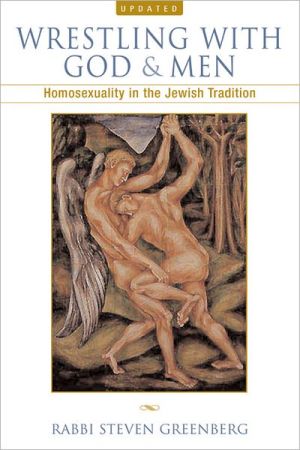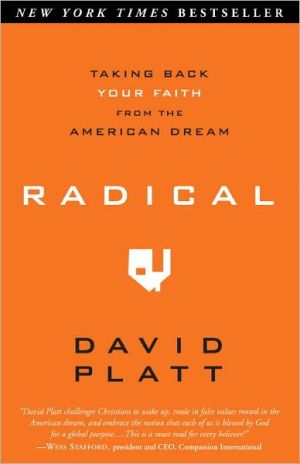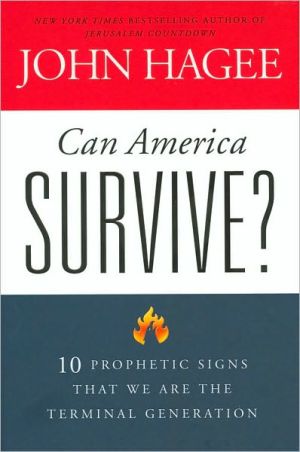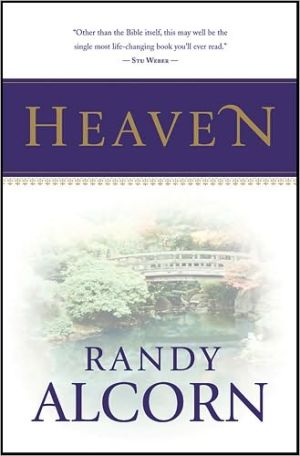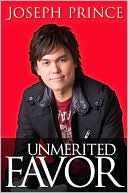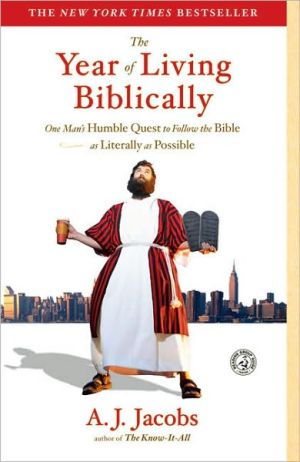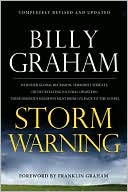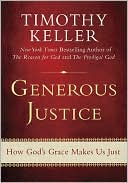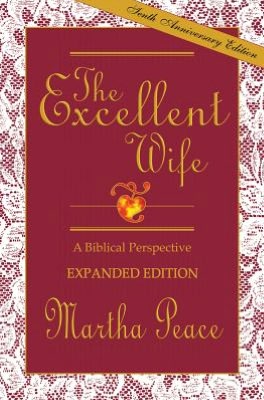Wrestling with God and Men: Homosexuality in the Jewish Tradition
For millennia, two biblical verses have been understood to condemn sex between men as an act so abhorrent that it is punishable by death. Traditionally Orthodox Jews, believing the scripture to be the word of God, have rejected homosexuality in accordance with this interpretation. In 1999, Rabbi Steven Greenberg challenged this tradition when he became the first Orthodox rabbi ever to openly declare his homosexuality.\ Wrestling with God and Men...
Search in google:
Rabbi Greenburg offers an intimate and personal look at homosexuality in Hasidic and Orthodox communities as told through the day-to-day stories of their gay and lesbian members. If the history of an uncontested ancient law is not be denied, he says, neither is the reality of human experience: conversation is necessary. Annotation ©2004 Book News, Inc., Portland, OR Publishers Weekly Defying more than 3,000 years of Torah tradition and belief, Greenberg, an Orthodox rabbi who recently publicized his homosexuality, embarks on a thorough, if questionable, trek to reevaluate the overt biblical prohibition of male-male relations. Central to his argument is a rereading of Leviticus 18:22, "Do not lie with a male as one lies with a woman; it is an abhorrence" (JPS translation) to be understood as "And (either a female or) a male you shall not sexually penetrate to humiliate [;] it is abhorrent." The story of Sodom's destruction, the love between David and Jonathan and the creation of Adam and Eve figure prominently as sources of new and interesting perspectives, yet they are all based on subjective evaluations that bear no textual confirmation. While he is obviously well versed in Torah knowledge and rabbinic law, Greenberg admits that he is "not a disinterested party on the matter of homosexuality"; indeed, many of his arguments stretch the truth or omit vital segments of biblical text to reach their desired conclusion, and, in addition, are fraught with expressions of unease such as "maybe" and "perhaps." This is not to say that his attempt bears no fruit. He effectively portrays the plight of closeted and openly gay Orthodox Jews who struggle daily with their sexual desires and with the knowledge that the Torah and the rabbis forbid homosexuality. While Greenberg's controversial biblical claims on this long-taboo topic may infuriate some and gratify others, his book arouses deep empathy for Orthodox homosexuals. (Feb.) Copyright 2003 Reed Business Information.
AcknowledgmentsAuthor's NotesIntroduction31The Birth of Gender and Desire412The Sons of God, Ham, and the Sodomites603Leviticus744Lesbian Omissions865Princely Love996Rabbinic Heroes1067The Queer Middle Ages1138The Legal Literature1249Rav Moshe and the Problem of Why13510The Rationale of Reproduction14711The Rationale of Social Disruption16612The Rationale of Category Confusion17513The Rationale of Humiliation and Violence19214Admitting Difference21715Welcoming Synagogues253Notes257Bibliography287Index291
\ From the Publisher"[Greenberg] effectively portrays the plight of closeted and openly gay Orthodox Jews who struggle daily with their sexual desires and with the knowledge that the Torah and the rabbis forbid homosexuality."—Publishers Weekly\ \ \ \ \ \ Publishers WeeklyDefying more than 3,000 years of Torah tradition and belief, Greenberg, an Orthodox rabbi who recently publicized his homosexuality, embarks on a thorough, if questionable, trek to reevaluate the overt biblical prohibition of male-male relations. Central to his argument is a rereading of Leviticus 18:22, "Do not lie with a male as one lies with a woman; it is an abhorrence" (JPS translation) to be understood as "And (either a female or) a male you shall not sexually penetrate to humiliate [;] it is abhorrent." The story of Sodom's destruction, the love between David and Jonathan and the creation of Adam and Eve figure prominently as sources of new and interesting perspectives, yet they are all based on subjective evaluations that bear no textual confirmation. While he is obviously well versed in Torah knowledge and rabbinic law, Greenberg admits that he is "not a disinterested party on the matter of homosexuality"; indeed, many of his arguments stretch the truth or omit vital segments of biblical text to reach their desired conclusion, and, in addition, are fraught with expressions of unease such as "maybe" and "perhaps." This is not to say that his attempt bears no fruit. He effectively portrays the plight of closeted and openly gay Orthodox Jews who struggle daily with their sexual desires and with the knowledge that the Torah and the rabbis forbid homosexuality. While Greenberg's controversial biblical claims on this long-taboo topic may infuriate some and gratify others, his book arouses deep empathy for Orthodox homosexuals. (Feb.) Copyright 2003 Reed Business Information.\ \
